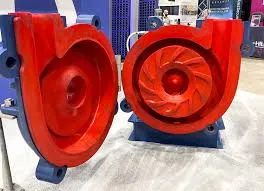English
- Afrikaans
- Albanian
- Amharic
- Arabic
- Armenian
- Azerbaijani
- Basque
- Belarusian
- Bengali
- Bosnian
- Bulgarian
- Catalan
- Cebuano
- Corsican
- Croatian
- Czech
- Danish
- Dutch
- English
- Esperanto
- Estonian
- Finnish
- French
- Frisian
- Galician
- Georgian
- German
- Greek
- Gujarati
- Haitian Creole
- hausa
- hawaiian
- Hebrew
- Hindi
- Miao
- Hungarian
- Icelandic
- igbo
- Indonesian
- irish
- Italian
- Japanese
- Javanese
- Kannada
- kazakh
- Khmer
- Rwandese
- Korean
- Kurdish
- Kyrgyz
- Lao
- Latin
- Latvian
- Lithuanian
- Luxembourgish
- Macedonian
- Malgashi
- Malay
- Malayalam
- Maltese
- Maori
- Marathi
- Mongolian
- Myanmar
- Nepali
- Norwegian
- Norwegian
- Occitan
- Pashto
- Persian
- Polish
- Portuguese
- Punjabi
- Romanian
- Russian
- Samoan
- Scottish Gaelic
- Serbian
- Sesotho
- Shona
- Sindhi
- Sinhala
- Slovak
- Slovenian
- Somali
- Spanish
- Sundanese
- Swahili
- Swedish
- Tagalog
- Tajik
- Tamil
- Tatar
- Telugu
- Thai
- Turkish
- Turkmen
- Ukrainian
- Urdu
- Uighur
- Uzbek
- Vietnamese
- Welsh
- Bantu
- Yiddish
- Yoruba
- Zulu
Telephone: +86 13120555503
Email: frank@cypump.com
Nov . 22, 2024 13:26 Back to list
horizontal chemical pipeline centrifugal pump
The Horizontal Chemical Pipeline Centrifugal Pump An Essential Component in Modern Industries
In today's rapidly evolving industrial landscape, efficiency and reliability are paramount. One of the unsung heroes that power various operations is the horizontal chemical pipeline centrifugal pump. These pumps are crucial for the transportation of chemicals, waste, and fluids in numerous sectors, including petrochemical processing, wastewater treatment, and food production. Understanding their design, functioning, and applications can offer significant insights into their importance in modern industrial processes.
Design and Functionality
Horizontal chemical pipeline centrifugal pumps are characterized by their horizontal orientation and the use of centrifugal force to move fluids. Their design typically includes a motor, impeller, volute casing, and a series of seals and bearings. The impeller, as the heart of the pump, converts rotational energy from the motor into kinetic energy, allowing the fluid to flow through the piping system efficiently.
Operating principles are straightforward the motor spins the impeller, which draws fluid into the pump casing. The design allows for the multiplication of the pressure as the fluid moves from the impeller to the volute. This ensures that chemicals can be transported over considerable distances and various elevations, maintaining flow consistency even under challenging conditions.
Advantages of Horizontal Design
One of the key advantages of horizontal chemical pipeline centrifugal pumps is their ease of maintenance. Their configuration allows for easy access to crucial components such as the impeller and seals. Moreover, horizontal pumps are generally more stable and can handle higher volumes compared to their vertical counterparts, making them suitable for large-scale industrial applications.
The horizontal orientation also minimizes the risk of cavitation, a phenomenon that can lead to pump failure. It ensures a steady flow of liquid into the pump, reducing fluctuations that can impact performance. Furthermore, these pumps are available in various materials, including stainless steel and other alloys, to withstand the corrosive nature of many chemicals being transported.
Applications Across Industries
horizontal chemical pipeline centrifugal pump

The applications of horizontal chemical pipeline centrifugal pumps span a wide range of industries. In the petrochemical industry, these pumps are vital for transporting crude oil, gasoline, and other chemicals through complex piping systems. They are designed to handle a variety of corrosive substances, making them indispensable in refineries.
In wastewater treatment facilities, these pumps facilitate the movement of sewage and other waste materials through treatment processes. Their robust design and reliable performance help maintain the efficiency of treatment plants, ensuring compliance with environmental regulations.
Food and beverage industries also leverage these pumps for transporting ingredients and products. Given the stringent hygiene standards in this sector, horizontal centrifugal pumps are available with sanitary designs to prevent contamination.
Future Trends and Innovations
As industries strive for enhanced efficiency and sustainability, the horizontal chemical pipeline centrifugal pumps are also evolving. Innovations in materials technology and engineering design promise to improve their performance and lifespan. Manufacturers are increasingly focusing on energy efficiency and features that minimize wear and tear, reducing the overall cost of ownership.
Moreover, the integration of smart technology is becoming commonplace. Smart pumps equipped with IoT sensors can provide real-time monitoring and diagnostics, allowing for proactive maintenance and reducing downtime.
Conclusion
The horizontal chemical pipeline centrifugal pump is an essential component in various industries, providing reliable and efficient fluid transport. Their design advantages, ease of maintenance, and broad applicability across sectors underscore their importance. As industries continue to evolve, the ongoing innovations in pump technology promise to enhance their performance, ensuring they remain at the forefront of industrial operations. Understanding and embracing these advancements will be crucial for companies seeking to optimize their processes and improve operational efficiency in an increasingly competitive market.
-
ISG Series Vertical Pipeline Pump - Chi Yuan Pumps Co., LTD.
NewsJul.30,2025
-
ISG Series Vertical Pipeline Pump - Chi Yuan Pumps Co., LTD.|energy-efficient fluid handling&industrial durability
NewsJul.30,2025
-
ISG Series Vertical Pipeline Pump - Chi Yuan Pumps | Advanced Engineering&Industrial Efficiency
NewsJul.30,2025
-
ISG Series Pipeline Pump - Chi Yuan Pumps | High Efficiency, Energy Saving
NewsJul.30,2025
-
ISG Series Vertical Pipeline Pump-Chi Yuan Pumps|High Efficiency&Reliable Performance
NewsJul.29,2025
-
ISG Series Vertical Pipeline Pump|High Efficiency&Low Noise
NewsJul.29,2025










